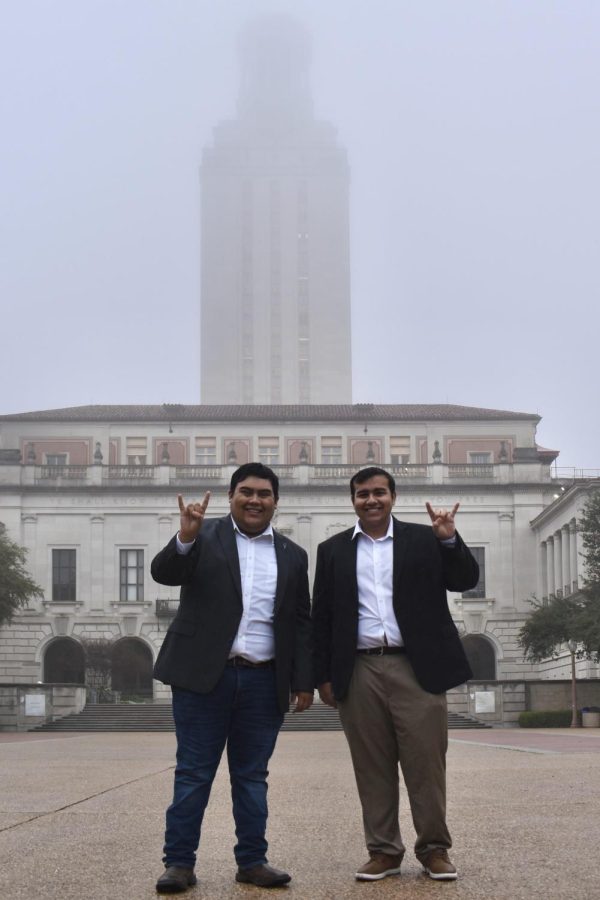UT is changing. Let’s make sure it’s for the better.
February 23, 2023
Editor’s note: This column was submitted by a member of the UT community.
UT is opening a new chapter in its history. Many positive things are changing on and around campus. Austin is the second fastest growing city in the United States, UT recently became a Hispanic Serving Institution, and we have completed our first semester without COVID-19 protocols.
This does not mean that all of the change is positive; we are in the midst of a legislative session determined to take our rights, the price of rent is on the rise, and a significant portion of UT students consider themselves food insecure.
Historically, Student Government was not able to address many of these issues, but that too has changed. Spurred by the historic inaction of SG and weekly controversies in the 115th Assembly, a new wave of student leaders rushed into SG to address the issues that they saw plaguing students.
We were part of that change. We are both ordinary students that go through the same problems that we are trying to fix on campus. We both started advocating for students the second that we got to UT, and we both started our advocacy journeys in the Senate of College Councils. We have been constantly working to bridge the gap in academics, increase accessibility, promote civic engagement, and make UT affordable for anyone that wants to attend. We understand that these issues take time to address, but we believe that we have taken meaningful steps to address these issues and if elected we hope to elevate our work to the next level.
We advocated for polling locations on campus and successfully added one for the citywide runoffs in December. We have built connections with local officials and have lobbied for measures that will increase affordability in Austin through expanding the University Neighborhood Overlay. We both served in leadership in SG to increase accountability and make SG more accessible to everyone. Most importantly, we did all of this work with full transparency. If you go to our campaign account right now, @diegoandbrian2023, you can see that we have kept a log of all of the work we have done from day one of being in elected office.
The largest systemic issue with SG is that it can quickly get bogged down in bureaucracy and procedure, which leads to SG mainly becoming a performative body with resolutions and condemnations without any real change. Another historic issue with SG campaigns is making lofty campaign promises without an understanding of SG’s funding mechanisms which leads to disappointment after disappointment. When crafting our campaign, we kept this history in mind and believe that most of our policies are feasible within our one-year terms, fully funded with the current SG budget, with a clear road map set for future administrations for our long-term policies.
We have accomplished this goal by splitting our policies into four categories: funded policies, unfunded policies, immediate policies and foundational policies. Finally, SG has been used as a tool by administration to neutralize organizers by co-opting their movements and sanitizing them to be more palatable for administration. We acknowledge our positionality and the power that SG has, which is why we are as intentional as possible when working with organizers. This is a trend we would like to continue if we were elected.
Ultimately, we are just students that want to improve UT by using the experience we have gathered during our time at UT. We believe that no matter your background or lived experience, our platform will have something that will positively affect your experience at UT. We hope that on Feb. 27 and 28 you can cast your ballot in support of our Proven Progressive Leadership.
Collazo is a Plan II, government and history junior from Humble, Texas. Pena is a Plan II, government and business sophomore from Weslaco, Texas.












